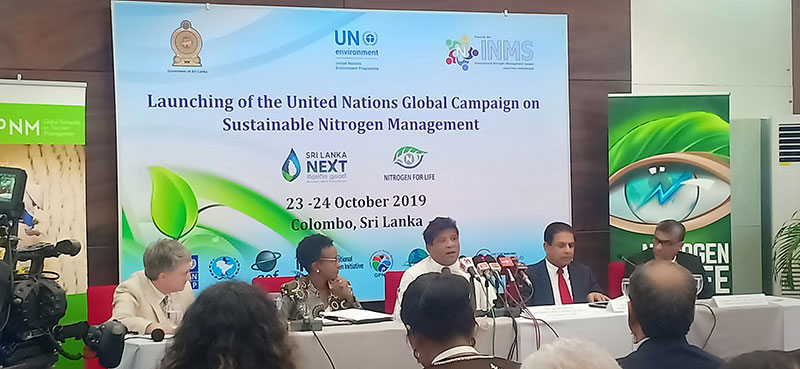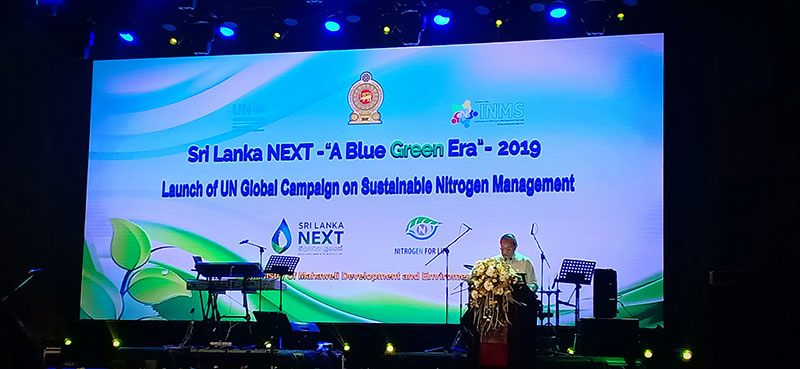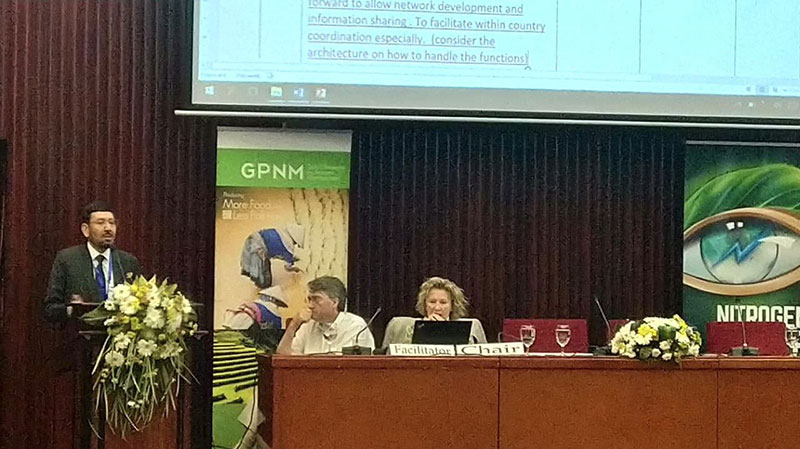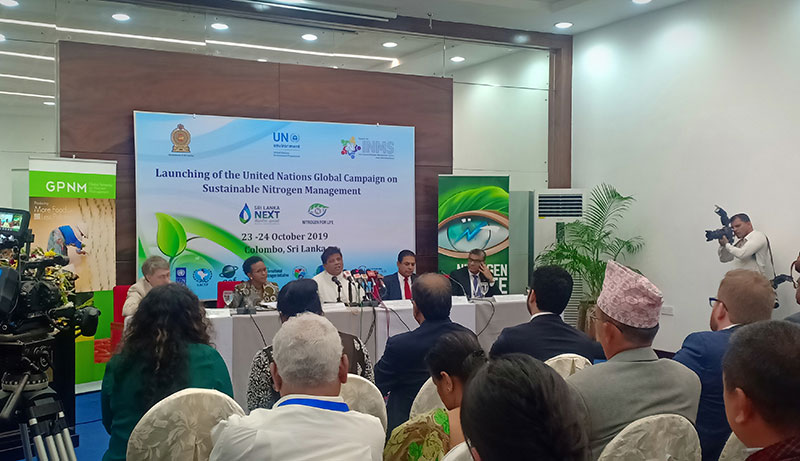October 25, 2019
At the time that the world grapples with different environment challenges, the Government of Sri Lanka and the United Nations Environment Programme in partnership with SACEP, INMS and many other international organizations launched the United Nations Global Campaign on Sustainable Nitrogen Management 'Nitrogen for Life' from 23 - 24 October 2019 at the Bandaranaike Memorial International Conference Hall in Colombo, Sri Lanka with the aim to adopt the Colombo Declaration.
The two-day event at which member states came together, adopted what is being called the “Colombo Declaration” with an ambition to halve nitrogen waste by 2030.
As part of the Declaration, officials representing the governments of more than 30 countries endorsed the proposed Roadmap for Action on Sustainable Nitrogen Management.
Member states recognized the urgency of addressing nitrogen management in meeting biodiversity goals, while offering huge economic opportunities in reducing reactive nitrogen that is wasted every year, as well as reducing eutrophic zones affecting fishing and tourism industries.
The Colombo Declaration calls upon UN agencies, other international organizations, development partners, philanthropic agencies, academic and civil society organizations to support its implementation. It further urges countries to conduct a comprehensive assessment on nitrogen cycling and developing policies on Sustainable Nitrogen Management.
Addressing Session on Science-Policy Political Dialogue, Director General of SACEP Dr. Abas Basir highlighted the importance of science-based policy on nitrogen and added that as it is reflected the UN Resolution on Sustainable Nitrogen Management, since 2017 SACEP has been involved in dialogue for preventing nitrogen pollution by gathering all the available information on reactive nitrogen to quantify the overall nitrogen budget for the SA region and to facilitate development of a globally coherent approach for sustainable nitrogen management. Dr. Basir informed the meeting that SACEP in collaboration with its international partners is closely working with its member countries to develop and implement South Asia framework policy on nitrogen.
Prior to the Colombo event, dozens of international experts wrote open letter to UN Secretary-General calling for wake up to devastating impact of nitrogen.
By this letter, more than 190 top international scientists called on the world to take urgent action on nitrogen pollution, to tackle the widespread harm it is causing to humans, wildlife and the planet.
The scientists highlighted that "the present environmental crisis is much more than a carbon problem" and asking all countries "to wake up to the challenge" of halving nitrogen waste from all sources globally by 2030.
Nitrogen, through its many forms - which include ammonia, nitrogen dioxide, nitrous oxide and nitrate - is polluting air, soil and water, posing a threat to human health, biodiversity, economies and livelihoods.
A focus on sustainable nitrogen management would help prevent millions of premature deaths, help ensure food security, and simultaneously help protect wildlife and the ozone layer and support efforts on climate change mitigation and adaptation.



